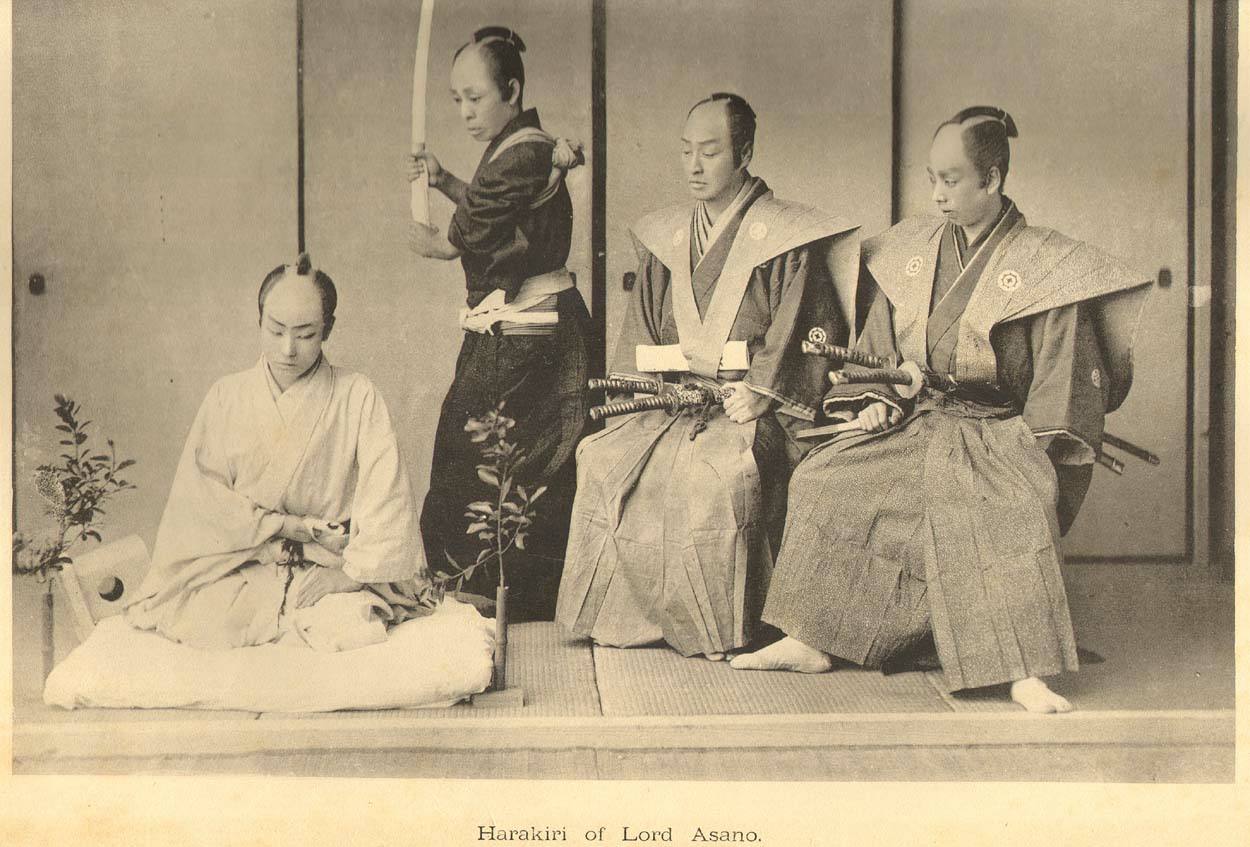The most famous ronin are the 47 ronin who went on a quest for revenge after the death of their master. This story actually gives a hint to the difference between a ronin and an average samurai – ronin were samurai without a master.
A samurai could become master-less either by the death or fall of his master or falling out of favour with his master; either way, the samurai was expected to commit seppuku, ritual suicide, when this happened. Any samurai who did not were known as ronin and were looked down upon by fellow samurai and society as a whole. Some ronin became swords for hire or bodyguards or even descended into criminal life, with many becoming bandits or joining notorious gangs. This did not help the reputation of the master-less samurai and their personas as violent thugs became the subject of ridicule and great humiliation. In modern Japan the title is used to describe people who are stuck in between periods of their lives, such as school graduates who have not attended university, or a salaryman who is unemployed.
Discover more answers to history questions by picking up a copy of All About History today.

